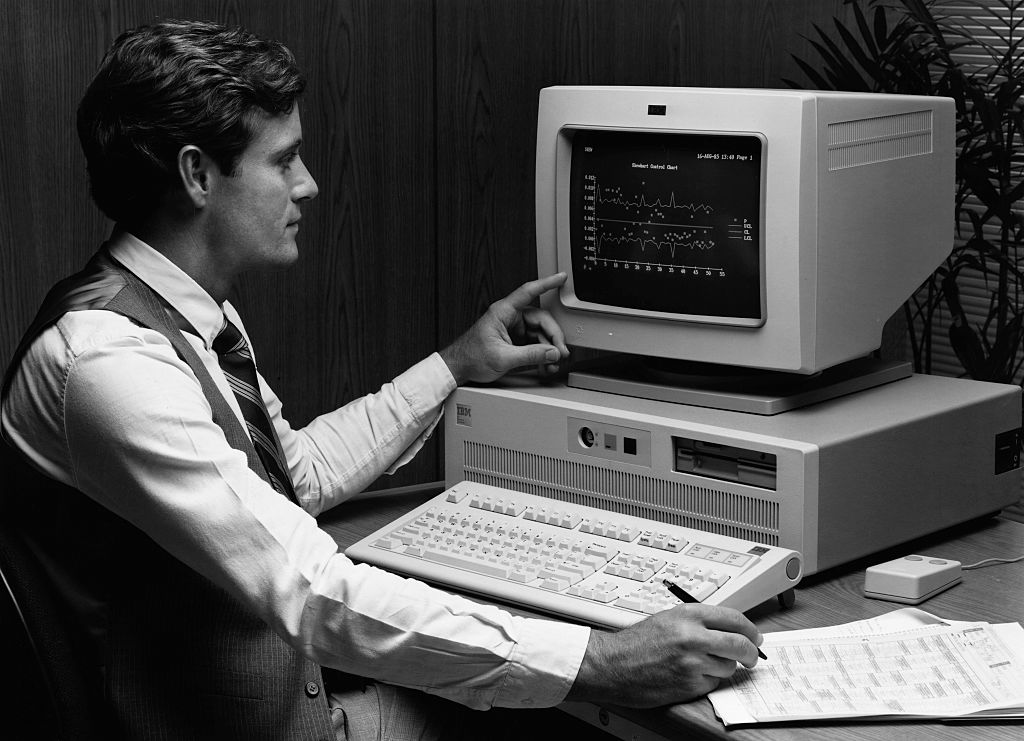
Get the latest financial news, insights and expert analysis from our award-winning MoneyWeek team, to help you understand what really matters when it comes to your finances.
You are now subscribed
Your newsletter sign-up was successful
Want to add more newsletters?

Twice daily
MoneyWeek
Get the latest financial news, insights and expert analysis from our award-winning MoneyWeek team, to help you understand what really matters when it comes to your finances.

Four times a week
Look After My Bills
Sign up to our free money-saving newsletter, filled with the latest news and expert advice to help you find the best tips and deals for managing your bills. Start saving today!
You might think that in the days before the internet, computer viruses just wouldn't exist. Yet, on this day in 1986, three years after being named “Man of the Year”, the personal computer got sick with the first PC virus. The culprit was the “Brain” virus, which was spread on 5.25-inch floppy disks. It was created by two brothers in Pakistan, Basit and Amjad Farooq Alvi, aged 17 and 24. They ran a software business and were having problems with piracy, so they added the virus to the disks containing their software to combat it.
The virus infected the boot sector of the disk, but did relatively little damage. The creators claim it was a “friendly virus”, unlike the more devastating viruses used by cyber criminals today. When a PC was infected, the volume label was changed to read “Brain”, and the following message appeared: Welcome to the Dungeon (c) 1986 Basit & Amjad (pvt) Ltd. BRAIN COMPUTER SERVICES 730 NIZAB BLOCK ALLAMA IQBAL TOWN LAHORE-PAKISTAN PHONE :430791,443248,280530. Beware of this VIRUS.... Contact us for vaccination............ $#@%$@!! Soon, people started calling. The first call was from a woman working on a magazine in Miami, wanting to know how to remove it.
The brothers still operate Brain Telecommunication with a third brother, from the same office in Lahore as they wrote the virus back in 1986. Now, however, their business is one of Pakistan's biggest internet service providers.
MoneyWeek
Subscribe to MoneyWeek today and get your first six magazine issues absolutely FREE

Sign up to Money Morning
Don't miss the latest investment and personal finances news, market analysis, plus money-saving tips with our free twice-daily newsletter
Don't miss the latest investment and personal finances news, market analysis, plus money-saving tips with our free twice-daily newsletter
Today, of course, viruses are serious business. They fly around the world at the speed of light – literally, in some cases causing billions of pounds' worth of damage every year. And they are not only created by computer nerds in their bedrooms. As the infamous Stuxnet shows, they are now an integral component in state cyber warfare.
Get the latest financial news, insights and expert analysis from our award-winning MoneyWeek team, to help you understand what really matters when it comes to your finances.

-
 Should you buy an active ETF?
Should you buy an active ETF?ETFs are often mischaracterised as passive products, but they can be a convenient way to add active management to your portfolio
-
 Power up your pension before 5 April – easy ways to save before the tax year end
Power up your pension before 5 April – easy ways to save before the tax year endWith the end of the tax year looming, pension savers currently have a window to review and maximise what’s going into their retirement funds – we look at how
